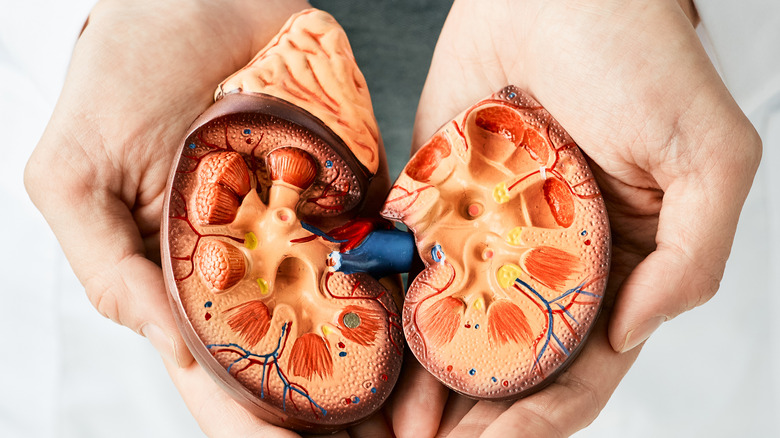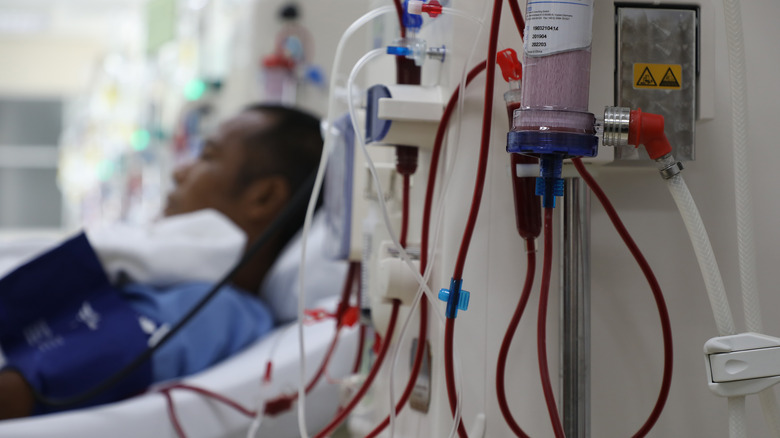Why Dialysis Might Not Be The Right Choice For Everyone With Late-Stage Kidney Disease
While kidney disease is challenging for those who live with it, treatments can help manage the condition and symptoms. Now, one of the most common treatments may require further consideration based on recent findings.
The kidneys, which are located on either side of the spine, balance fluid in the body, remove waste from the blood, help manage blood pressure, and stimulate red blood cell creation (via WebMD). Two types of kidney disease can occur — acute and chronic. Acute is when the kidneys stop working suddenly, and chronic is when the kidneys fail to function correctly for more than three months. Once kidney disease progresses into the end stages, patients need either a kidney transplant or dialysis to maintain kidney function.
Dialysis is used for end-stage kidney failure, which is when you have lost about 85% of kidney function (per the National Kidney Foundation). This treatment acts like an artificial kidney for the body, helping to remove waste and preventing the build-up of fluids and chemicals. During dialysis, the body is either hooked up to a machine and your blood is pumped through it, or your abdomen is filled with fluid via a catheter to clean the blood. Both procedures require surgery and repeated treatments, and they can take hours at a time. Depending on your situation, you will either be in a clinic, hospital, or at home for treatments. While dialysis doesn't cure kidney disease, it helps keep you alive and can significantly extend your life expectancy.
Dialysis can lead to more hospital visits
Dialysis may be helpful to many with kidney disease, but it might not be suitable for everyone, according to a new study presented at the American Society of Nephrology's Kidney Week event (per Healthline). The study analyzed the hospitalization rates of 309,188 patients with advanced kidney disease. They were treated with dialysis or conservative management from 2007 to 2020. Research suggested that those who started receiving dialysis early had higher hospitalization rates than those who received conservative management. Their rate was also higher compared to patients who started dialysis at lower levels of kidney function. The most common reasons for hospitalization were respiratory problems, hypertension, and congestive heart failure.
Conservative management is a choice you can make, and while its goal isn't the same as dialysis, it may be more practical for some. Conservative management is usually handled by a combined team of professionals, such as counselors, dieticians, pharmacists, and nurses who work together to manage care. A 2022 study published in Nephrology on conservative care found that those who chose it maintained their quality of life, mental, and physical health until late in their illness.
"There are some patients where conservative care could be a better option," Dr. Udayan Bhatt, a nephrologist at The Ohio State University Wexner Medical Center, explained to Healthline.


